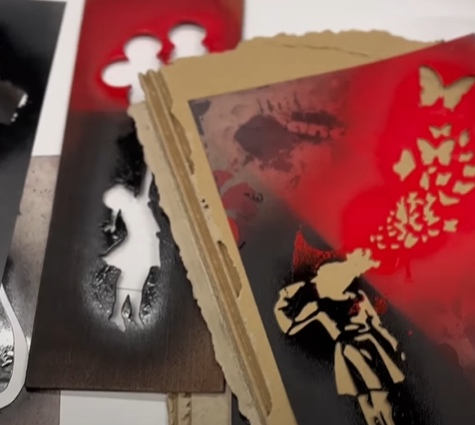Law & Politics
Catalonia Police Bust a Forgery Ring Accused of Making Fake Banksy Prints
The investigation began in July after police noticed irregularities in the Barcelona art market.

The investigation began in July after police noticed irregularities in the Barcelona art market.

Adam Schrader

Police in the autonomous region of Catalonia in Spain have shut down a crime ring accused of making fake Banksy prints after spotting irregularities in the art market in Barcelona.
The Mossos d’Esquadra, Catalonia’s police force, announced Thursday, March 7, that the prints were made in a workshop in an apartment in nearby Zaragoza and purported to be from the anonymous graffiti artist’s Dismaland project.
Dismaland was a temporary amusement park installed in Weston-super-Mare, a British town near Banksy’s home city of Bristol, between August 22 and September 27, 2015. It was described by the artist as “unsuitable for children” and provided an unsettling dark parody of theme parks and consumerism.
Four suspects are being investigated on fraud charges, police said. Investigators seized nine fraudulent Banksy works and identified another 25 past works sold for €1,500 each, or about $1,640, to buyers in Spain, Germany, Switzerland, the United States, and Scotland.
The investigation began in July 2023 after investigators with the cultural heritage unit of the police force, which was monitoring the art market, detected several sales purported to be of works by Banksy on online platforms, as well as auction houses and antique shops in Barcelona.
Investigators began to trace the movement of the fraudulent Banksy works in August, and raided the Zaragoza workshop in December. The works were made on cardboard with spray paint, using stencils and incorporating elements that generate confidence in buyers, such as ink seals and stickers. A video shared by police on social media shows Dismaland stickers and mylar stencils of Banksy’s famed works such as Girl With a Balloon.
Still, police sympathetically described two of the suspected fraudsters as followers of Banksy with “economic problems,” who added their own graphic elements to Banksy’s designs “that made them more attractive.”
“The accredited sales of this couple were at reasonable prices and no higher than €80,” police said. “The main person investigated, with the role of distributor, is a person with knowledge of the functioning of the graphic art market and its distribution.”
The crime ring also created a fake certificate authenticating the works as part of the Dismaland project. The man behind the fake certifications is the fourth person under investigation for his alleged collaboration.
The only entity that has the authority to authenticate Banksy’s artworks is his company, Pest Control.